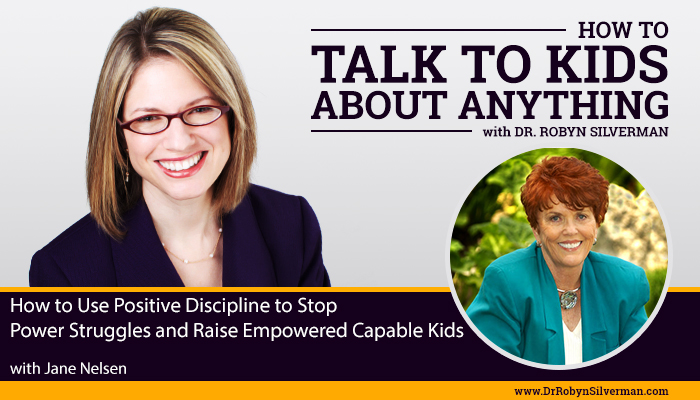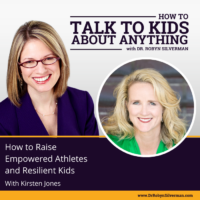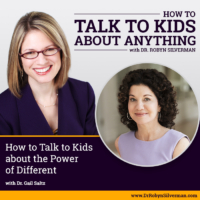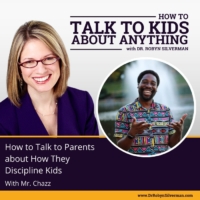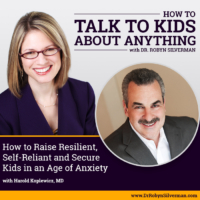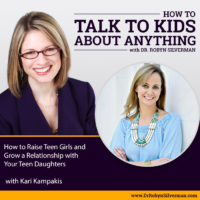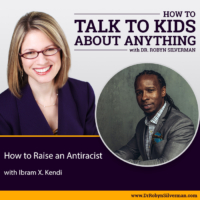Podcast: Play in new window | Download
Subscribe: Apple Podcasts | RSS | More
How to Use Positive Discipline to Stop Power Struggles and Raise Empowered Capable Kids
This podcast will focus on how to use positive discipline to stop power struggles, connect with children and raise empowered, capable kids. Instead of nagging, yelling and rescuing, what tools can we use to help guide children to use positive skills to solve problems and show responsibility? In Jane Nelsen’s unique, masterful way, she provides specific take-aways that we can use with our children so that both the adults and the kids come benefit. From employing family meetings to using curiosity questions, teaching ways to contribute and using positive child-lead time outs, Jane provides so many tools to stick into our parenting toolbelts!
Special guest: Jane Nelsen.
Children are always learning- and yes, they also make a lot of mistakes. Whether they are fighting with their siblings, tantruming 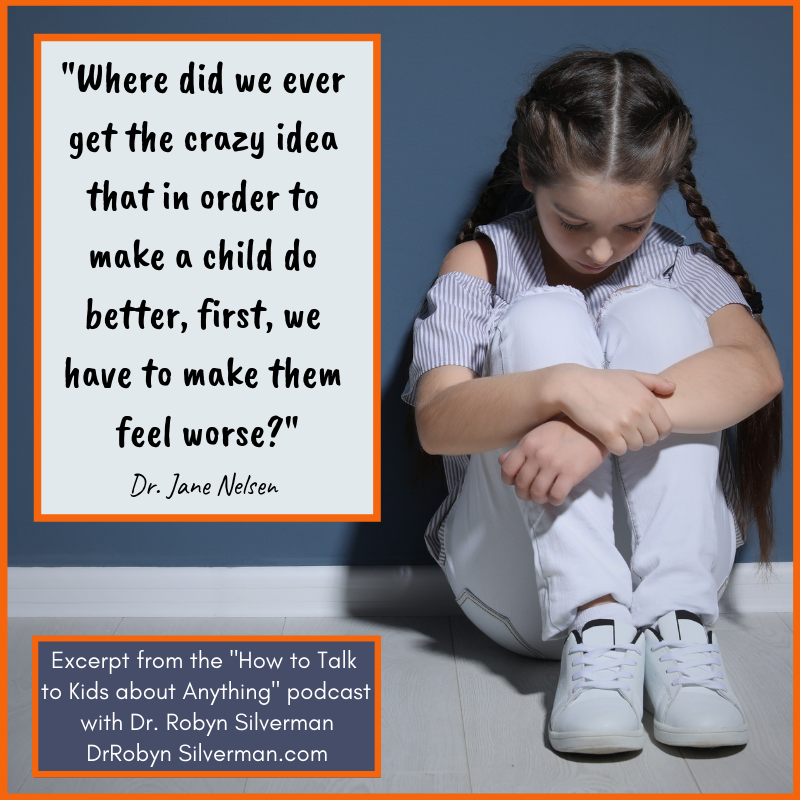 about bedtime, missing the bus, forgetting their homework or talking back to you, it seems like there is a constant need for correction, apologies and do-overs. At the same time, there are all kinds of parents and teachers out there who witness such mistakes—from people who watch children act out or mess up and punish them or deliver punitive consequences immediately—to those who are incredibly permissive—who see children do something undesired and simply turn the other cheek and say; “kids will be kids.” Many parents and educators fall somewhere in between or vacillate between the two extremes of punitive and permissive.
about bedtime, missing the bus, forgetting their homework or talking back to you, it seems like there is a constant need for correction, apologies and do-overs. At the same time, there are all kinds of parents and teachers out there who witness such mistakes—from people who watch children act out or mess up and punish them or deliver punitive consequences immediately—to those who are incredibly permissive—who see children do something undesired and simply turn the other cheek and say; “kids will be kids.” Many parents and educators fall somewhere in between or vacillate between the two extremes of punitive and permissive.
Of course, most parents and teachers are just trying to figure out how to raise children who are kind, responsible, cooperative and self-disciplined. But what if I told you that there are many parenting and teaching skills that we can talk about right now that are non-punitive and not permissive—but would help children learn self-discipline, responsibility, and problem-solving skills—helping them to grow up into adults who can use these skills throughout their lives? Whether you are trying to get the kids to school on time, get everyone to agree on a movie for movie night or get from place to place without someone yelling or kicking or needling someone else in the car, we all deal with power struggles and frustration. Today, we’ve got positive discipline expert, Jane Nelsen on the show—and she’s going to help us learn how to be both kind and firm, connect with our children, give them a sense of belonging and significance—while helping them choose right from wrong.
Dr. Jane Nelsen is the mother of 7, grandmother of 22, and great grandmother of 13. She is also the author and co-author of many best-selling Positive Discipline books including Positive Discipline: The Classic Guide to Helping Children Develop Self-Discipline, Responsibility, Cooperation and Problem-Solving Skills and Positive Discipline Parenting Tools. An internationally known speaker and parenting expert, Jane is a California licensed marriage, family and child therapist, and received her doctorate in Educational Psychology from the University of San Francisco.
The podcast provides:
- What’s really below the tip of the iceberg—why kids are behaving in the ways that they are.
- How to use positive discipline techniques in a host of common situations
- How to be both kind and firm
- What we should and shouldn’t do when a child misbehaves
- The difference between praise and encouragement
- How to help kids strengthen their disappointment muscles
- What is the problem with time-outs and what techniques work better
- How to teach kids to apologize
- How to get kids to cooperate
Important Messages:
- Your kids won’t be perfect and the parent won’t be perfect
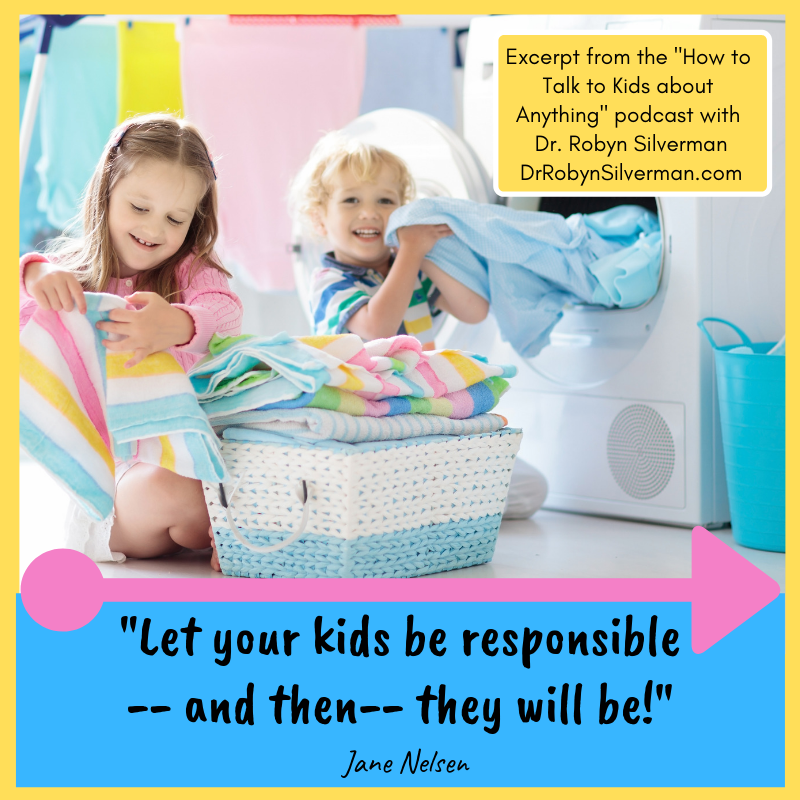
- Punishment and rewards work BUT positive discipline is about doing the right thing when nobody is looking.
- We want kids to grow up to be responsible and competence but we also want them to grow up with self esteem in tact.
- Many children, with so much pressure on grades, start to feel that the grades are more important than they are- and this can result in one of the 4 mistaken goals.
- What is the belief that is motivating the behavior? (Why do you keep putting kids in these boxes? Adler: I don’t keep putting them there- I keep finding them there.)
- Sometimes it’s not misbehavior, it’s typical behavior depending on the age of the child. Use your feeling to figure out how your child is feeling.
- In positive discipline, we need to be kind AND firm. Kind- validating feelings, giving space, do you need a hug? Firm: I know you are angry AND it’s not okay to hit. I know you are tired AND it’s time to do your homework.
- It’s ridiculous to expect our kids to be perfect when we haven’t attained that ourselves. “I’m really angry right now AND I need some time to calm down.”
- Punishment is about making kids feel worse- and yet, we expect it’s supposed to make them do better? Even if they do better it’s with a real shot to their self esteem.
- All love and no responsibility- makes kids feel entitled. This is a problem when the kids are young but also when they are adults.
- Children learn very early- either love means I’m pampered or I get plenty of love but I also must contribute.
- Make sure you are having family meetings. How can we all contribute? Eliminate any ideas that aren’t part of the 3 Rs- related, responsible or respectful to everyone.
- Tool: What was our agreement during the family meeting?
- Tool: The look (nice try).
- If they keep pushing back, might need to heal a part of your relationship. Might be in a power struggle.
- TOOL: I get the feeling that we are in a power struggle—I wondered what MY role was in that?
- Build the relationship- time every week.
- Family meeting: Start with compliments, have an agenda- in kitchen where you can add items. Talking stick. Giving compliments- helps kids learn how to give them and how to receive them.
- Give ideas to solve the problem- they can be wild and crazy—then narrow down those that are not respectful, responsible and related or helpful.
- You can use an hourglass.
- When kids get complimented on their behavior outside of the house- it’s a sign of really good parenting since they feel safe inside the house—and they go out into public and practice their skills.
- We need to allow our children to suffer—not make them suffer- but allow them to suffer when they make a mistake so that they learn from it. (i.e. losing the baseball mitt- we don’t buy them another one)
- Script: “I lost my baseball mitt!” “Oh. I’m so sorry!” (silence—so hard!) “I’ll miss the game!” “Oh, you must be so disappointed.” (let them have their feelings). “Aren’t you going to buy me another one?” “Nope, honey. But I’m sure you can figure out a solution.” (they’ll borrow one or earn one through jobs.) Stop lecturing and stop rescuing! (Validate feelings but allow them to be responsible)
- Problem solve with your children- what about this? Take time for training.
- Positive time out- something that the child creates. Creates a place that makes them feel better. No screens. Music, Blankets. Fort. Etc. Refrigerator box? Card table?
- Dan Siegel- flip their lid—need time to get it back on. Ask them if they’d like to go to their time out. “Would you like me to come with you?” It’s NOT for punishment- it’s to use to calm down. Kids often don’t do well with isolation- can trigger brain in negative way. “I need to go to mine.” Many times they will follow you and tell you that they want to come with you. Or use the wheel of choice. Or read a book (Example: Jared’s Cool Out Space)
- Cool out space- something I can create and I can choose- so teaching self-regulation. (you name it so that it’s your space).
- Allow your children to learn what works for them.
- Admit and recognize their mistake- what they learn from it and how they fixed it. Share your mistakes!
- Curiosity questions- ask; “what happened? What can you do about it?” What do you think about it? How did it make you feel?” This gets them thinking about it and problem solving. Don’t ask unless you are curious. (not accusatory- they are exploratory—“that’s why they are called curiosity questions, not accusatory questions!”).
- Love and responsibility- children must learn the benefits of contribution.
Notable Quotables:
- “Mistakes are wonderful opportunities to learn.”
- “The thing is—punishment and rewards work—kids will not do something to avoid punishment and do something to get the rewards BUT positive discipline us about doing the right thing when nobody is looking.”
- “Children want to feel belonging and significance and when they don’t they feel belonging and significance they often will find a mistaken way to find belonging and significance. When they don’t know how to do it, they end up choosing one of the 4 mistaken goals of (1) Undue attention, (2) Misguided power, (3) Revenge, (4) Giving up.”
- “Sometimes it’s not misbehavior, it’s typical behavior depending on the age of the child.”
- “Kids need a balance of love and responsibility. If kids have love but no responsibility, that’s where we wind up with the entitled mentality.”
- “In positive discipline parenting, we should be kind and firm. It’s the ‘and’ that’s important. Some go overboard and are kind but not firm.”
- “Parents want their children to control their behavior but they won’t control their own.”
- “It’s ridiculous to expect our kids to be perfect when we haven’t attained that ourselves.”
- “Connection before correction.”
- “Where did we ever get the crazy idea that in order to make a child do better, first we have to make them feel worse?”
- “Punishment is about making kids feel worse—belittling them, humiliating them, scolding them—and that’s supposed to make them do better? And even if they do better it’s with a shot to their self-esteem.”
- “Kids will do better when they know they are capable.”
- “A child who gets too much love in the sense that s/he is pampered really grows up with the belief that love means getting other people to take care of me. That’s hard on all relationships in life. We want kids to grow up feeling love and significance through responsibility, through contribution and through skills that will enhance my life. It’s about that balance.”
- “Children love to contribute when they are really young but when we do too much for them just because it’s faster or easier or we don’t want to watch them struggle, then it’s easy for them to say ‘I’ll let other people do this for me because then I’ll feel more loved.”
- “Parents might not want to have to remind their children to do what they need to do but if they didn’t need reminders, they wouldn’t need a parent.”
- “Giving compliments in a family meeting really teaches kids to start looking for the good things that they can say and to verbalize them—and to say thank you when they receive one.
- “At home, kids feel safe to test the boundaries and figure out what works. But they’re learning! They go out into public and they practice what they’ve been learning. Remember; raising kids is, at least, and 18-year process. It doesn’t happen overnight!”
- “Let your kids be responsible and then, they will be!”
- “Kids are so good at figuring things out when they are in an atmosphere of kind support.”
- “Children can’t be expected to simply know how to do things just because we know how. They must be taught the skills.”
- “We say we want our kids to learn self-discipline and self-control and responsibility. How are they ever going to learn that if we don’t give them the skills and opportunity to use them?”
- “Don’t ever hear these curiosity questions as scripts. You’ve got to add your heart, your wisdom and be in the moment so it doesn’t just sounds like a technique.”
- “Focus on love AND responsibility.”
- “Who your children are today is not who they will be tomorrow. The child who you have to keep reminding to pick up her junk lying around all over the place is going to grow up to be the mother who will be telling her child to pick up all of his junk!”

